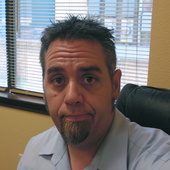
photo courtesy of Mai Le
Being an expert.
I read a comment on someone's blog today (and won't link to it as the comment doesn't really apply to what I'm writing, it just sent me down this path) that made me think about the word expert and how we use it consistently in real estate. Everyone wants to hire someone with expertise in their field, no matter what industry you're coming from. We like to know we're getting the best of the best. We don't want to hire someone who has no experience in their field.
Merriam-Webster defines expert:
2 : having, involving, or displaying special skill or knowledge derived from training or experience
I certainly don't want someone without training or experience helping me buy and sell my house. I might as well let my cat sell my house then, right? I want an expert, right? But what makes a real estate agent an expert?
Sure, when an agent has sold a ton of real estate, there is a certain level of experience that goes with it. They train, they read, they learn, they practice. This is an expert by the very definition of the word.
But once; they didn't have that training, that level of experience, they hadn't sold those homes. They weren't an expert, right? They were just somebody with a real estate license.
You learn something new everyday.
Every time I speak with an agent who has more real-time experience than I do, I ask them about how they feel about this or that involving the ins and outs of a contract. I love to learn from other people when it comes to ideas and theories of real estate. The one common thread I have found in all of these conversations is the phrase, "You learn something new on every contract you do."
Wait, read that again. Let's use some logic here. Follow me. If an experienced agent learns something new on every contract, that means they encounter something they don't know, don't have experience in, or have not seen before. It's new to them. So while doing that contract, that real estate agent isn't an expert (in regards to that specific contract), right?
Now, I know I'm stretching definitions a bit here, but I'm attempting to get you to think a little bit differently. An expert isn't someone who has training and experience. You heard me.
So what is an expert then?
When I was young, I had a hard time in school. I found myself bored and rarely challenged. Because of that, I often slacked off and just sort of made my way through school. I felt I was an expert, that's for sure (I may have had a little bit of an ego when I was younger). One day, while having a conversation with my parents, I told them I was bored and not learning anything in school. My step-mom explained to me the reason we go to school from her point of view:
You're not going to school to learn facts and figures, you're going to learn how to learn.
That message has stuck with me all my life. You don't have to know everything, you just have to know how to find the answers to everything. This, in my book, is what defines an expert. Everyone in real estate started at the beginning, when they did their first transaction were they so clueless that they shouldn't have been near a real estate contract? (Possibly.) But most of us made it through our early transactions - not by being an expert, but knowing how to learn from others' expertise. We asked questions, read blogs, called agents in our office - whatever it took. We learned what we needed to in order to complete our first transactions.
When I see someone using the title of expert (especially when it applies to particular disciplines such as short sales or foreclosures), I often wonder how they got there. Did they sell a few blindly to start? Did they tell their clients not to worry, they were an expert? Did they use the experience to learn?
Real estate is a hands on experience. I was well trained at my first office (and my first broker is known for his training) and excelled at school as well. I did so many "practice" contracts, I probably killed several forests just trying to figure out how many days it took to get a survey or how much a residential service contract (home warranty) costs. Despite all of the that training, my first sale was a piece of a land. A completely different form, a completely different contract. On top of that, it contained a unique twist of having a mobile home on it that was owned by a third party who wanted to leave it behind when they moved, but wanted to lease it back from the buyer for a few months. Talk about not being prepared! Instead of folding; I asked a million questions, got the help I needed, and completed a successful transaction with my buyers walking away very happy.
I was an expert.

Comments(83)